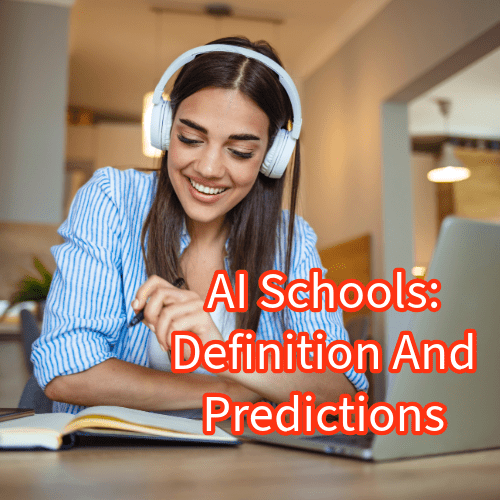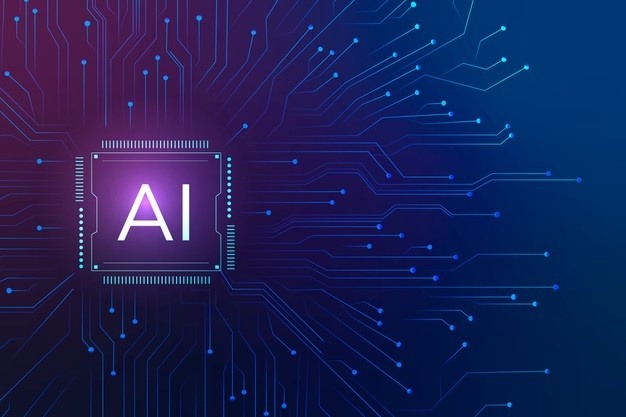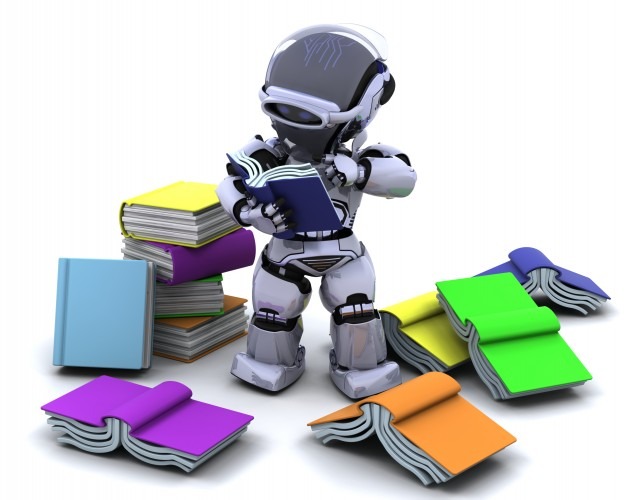
Artificial Intelligence (AI) has transformed industries and everyday life, and its impact on education keeps growing. AI schools represent the next evolution in the educational landscape, where traditional methods are replaced by AI-driven technologies.
Here is the definition of AI schools and predictions for how they might shape the future of education.
AI Schools – Definition And Predictions

AI Schools – Definition
AI schools are educational institutions or environments where artificial intelligence is integrated into the core of teaching, learning, and administrative processes.
This integration can take various forms, including personalized learning platforms, intelligent tutoring systems, automated grading, and AI-driven decision-making in school administration.
AI schools can provide personalized learning. Traditional education systems follow a one-size-fits-all approach, where the teaching method is standard and students are expected to adapt to it.

In contrast, AI-driven educational systems are designed to adapt to each student’s learning pace, style, and needs.
This is achieved through data analytics and machine learning algorithms that assess a student’s performance and adjust the teaching methods accordingly.
For instance, AI-powered platforms can provide real-time feedback, recommend specific learning resources, and predict when a student might struggle with a particular topic.
This level of customization is impossible to achieve in traditional classrooms with large student-to-teacher ratios.
AI in Education
AI has already begun to change and improve various aspects of education. Several tools and platforms are used to enhance the learning experience.

Adaptive Learning Platforms
Companies like DreamBox and Smart Sparrow have developed platforms that tailor educational content to individual learners. These platforms analyze student data to deliver personalized lessons that cater to each student’s strengths and weaknesses.
Intelligent Tutoring Systems (ITS)
AI-driven tutoring systems, like Carnegie Learning’s Cognitive Tutor, offer personalized assistance to students. These systems can mimic the one-on-one interaction between a student and a human tutor, providing tailored guidance and practice.
Automated Grading
AI automates the grading process, particularly for multiple-choice and short-answer questions. Companies utilize machine learning to streamline grading, allowing teachers to focus on instructional time rather than administrative tasks.

AI in Administration
Beyond the classroom, AI can improve school administration. This includes optimizing scheduling, managing student data, and predicting enrollment trends. AI can help administrators make data-driven decisions, enhancing the efficiency of the institution.
Predictions for the Future of AI Schools
As AI technology advances, its role in education is expected to grow exponentially.
Here are some predictions for the future of AI schools
Fully Automated Classrooms
In the future, we may see fully automated classrooms where AI systems handle most teaching tasks. In AI schools, human teachers would act more as mentors, guiding students in their learning journey rather than delivering lectures or grading assignments.

AI could also enable the development of virtual classrooms, where students from different parts of the world can learn together in a digital environment.
This would democratize access to high-quality education, breaking down geographical and socioeconomic barriers.
Lifelong Learning
The concept of lifelong learning is expected to gain traction with the help of AI. As industries evolve and job requirements change, individuals will need to continuously update their skills.
AI-driven educational platforms could offer personalized learning paths that adapt to the learner’s career progression, ensuring they remain competitive in the job market.
Enhanced Special Education
AI can provide special education. Personalized learning platforms can be beneficial for students with learning disabilities. AI can also assist in diagnosing learning challenges early and providing help or medical therapy.

Teacher-Student Relationships
The relationship between teachers and students may also evolve as AI takes on a more prominent role in education. Teachers will need to adapt to new technologies, embracing their role as facilitators rather than traditional instructors.
This shift could lead to a more collaborative and student-centered learning environment, where teachers guide students in developing critical thinking and problem-solving skills.
AI-Driven Assessments
Traditional exams and tests will become AI-driven assessments that evaluate students’ knowledge and skills more holistically and continuously.
Instead of relying on a single test to measure a student’s ability, AI could assess a student’s progress over time, providing a more accurate and comprehensive evaluation of their learning.

AI schools represent a transformative shift in education, offering the potential to create more personalized, efficient, and effective learning environments.
AI will impact education and its role will grow in the coming years.
The future of AI schools is bright, but it will require careful consideration and implementation to create better schools and help people worldwide.
AI Tools for You
https://www.bestprofitsonline.com/myblog/newai
Tip
How To Improve Your Social Media Marketing
